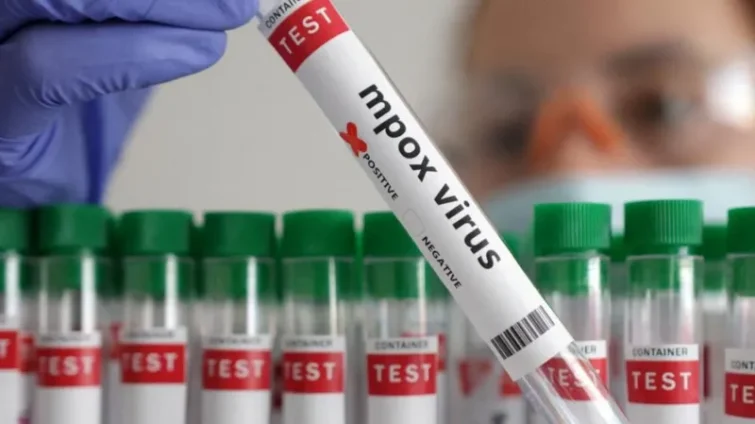
Audio By Carbonatix
The World Health Organization (WHO) has approved the first diagnostic test for mpox where the results can be immediately known, saying it could prove pivotal in helping to stop the rising global cases of the deadly virus.
The new PCR test enables the detection of the mpox DNA taken from skin lesion swabs.
Currently, samples have to be sent to a laboratory for testing and the patient and medics have to wait days for the result.
Limited testing capacity and delays in confirming cases continue to be a challenge in Africa - worsening the spread of mpox that was previously known as monkeypox.
Of the more than 30,000 suspected cases reported in Africa this year, barely 40% had been confirmed through a test, the WHO said.
Yukiko Nakatani, the WHO's assistant director-general, described the new diagnostic test as "a significant milestone".
“Increasing access to quality-assured medical products is central to our efforts in assisting countries to contain the spread of the virus and protect their people, especially in underserved regions," she added.
The breakthrough comes as the Democratic Republic of the Congo, where the highest number of cases has been reported, prepares to begin an mpox vaccination programme on Saturday.
Mpox, which is a highly contagious disease, has killed at least 635 people in that country this year.
In August, the outbreak of the virus was declared a global public health emergency by the WHO for the second time in two years, following rising cases in DR Congo and its spread to neighbouring Burundi, Uganda and Rwanda.
Some Western countries have donated doses of mpox vaccines to combat the outbreak of the disease in Africa but reports say more are urgently needed.
Rwanda, which was the first to administer mpox vaccines in Africa last month, is set to receive 5,000 more doses on Friday, according to the Africa Centres for Disease Control and Prevention (Africa CDC).
In Nigeria, a vaccination drive against the virus is set to be rolled out next Tuesday, the Africa CDC said.
Frontline healthcare workers and close contacts of infected patients are set to be given priority in DR Congo, which has 200,000 vaccines donated by the European Commission, it said.
Latest Stories
-
NPP still hurting after 2024 loss – Justin Kodua
2 minutes -
Ghana declares war on illegal streaming of pay-TV content
4 minutes -
Vice President leads 44th anniversary commemoration of 31st December Revolution
5 minutes -
Valencia coach Fernando Martin dies in Indonesia boat accident
22 minutes -
Nigeria AG’s intervention brings relief to River Park estate investors – JonahCapital
34 minutes -
High number of youth behind bars is a national loss – Ashanti regional prisons commander
51 minutes -
Nhyira Aboodoo shifts to monumental projects, injects GH₵270,000 into Ashanti orphanages
56 minutes -
Police restores calm after swoop operation at Aboso
1 hour -
Through thick and thin in 2025: KGL Group makes national, global impact
1 hour -
Clean Air Fund sets 2026 targets, pushing gov’t toward funding, tougher laws and real health gains on air pollution
2 hours -
New Year begins with 15.92% water and 9.86% electricity tariff hikes
2 hours -
TUC, PURC call for calm amid power tariff concerns, assure public of stakeholder engagement
2 hours -
New VAT is a game changer for Ghana’s revenue collection – GRA Boss
3 hours -
Adom FM’s Strictly Highlife comes off today at Palms Convention Centre
3 hours -
Relive the 90s: Joy FM’s 90’s Jam takes over this Friday
3 hours

